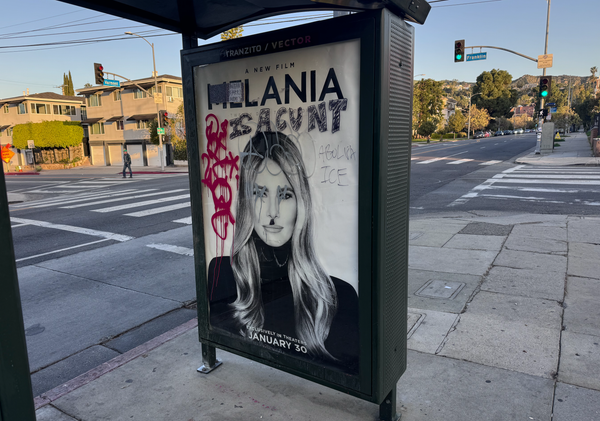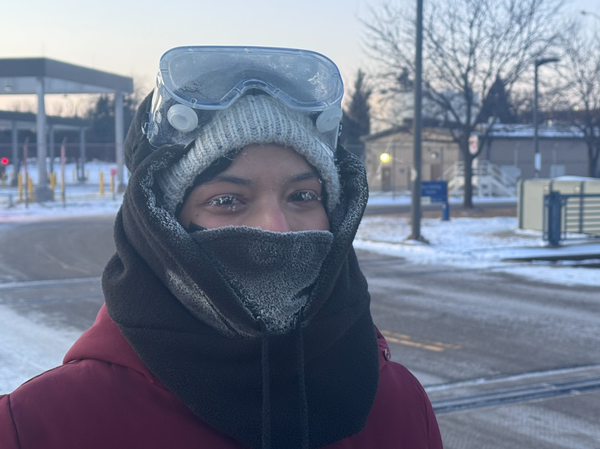Cutting Through An Inundation of Dipshit Racists
Emmy Rākete on the meaning behind that haka.

Hi,
Watching New Zealand from afar offers a strange perspective.
It can be a good thing — distance from Aotearoa helped keep me sane while I reported on abuse at New Zealand’s biggest megachurch over the course of a year. It helps fuel my silly podcast.
But it can also be frustrating and annoying — last week feeling like a reverse Flightless Bird as I saw the absolute dumbass American response to what happened in New Zealand’s parliament.
New Zealand’s parliament was briefly suspended on Thursday after Maori members staged a haka to disrupt the vote on a contentious bill that would reinterpret a 184-year-old treaty between the British and Indigenous Maori.
All of this was filmed, and then it went viral.
And all of a sudden thousands of brussel sprouts were weighing in from every corner of the globe on something they knew absolutely nothing about.
For anyone who happens to be unaware, New Zealand no longer has a female Prime Minister. In her place are three bumbling men, one of whom is pushing something called the “Treaty Principles Bill” — a bill which would undermine the Treaty of Waitangi, Aotearoa’s founding document.
There has been a lot of pushback and disgust to this bill (thank Christ) — including a massive hīkoi of 50,000 people, and the haka in parliament.
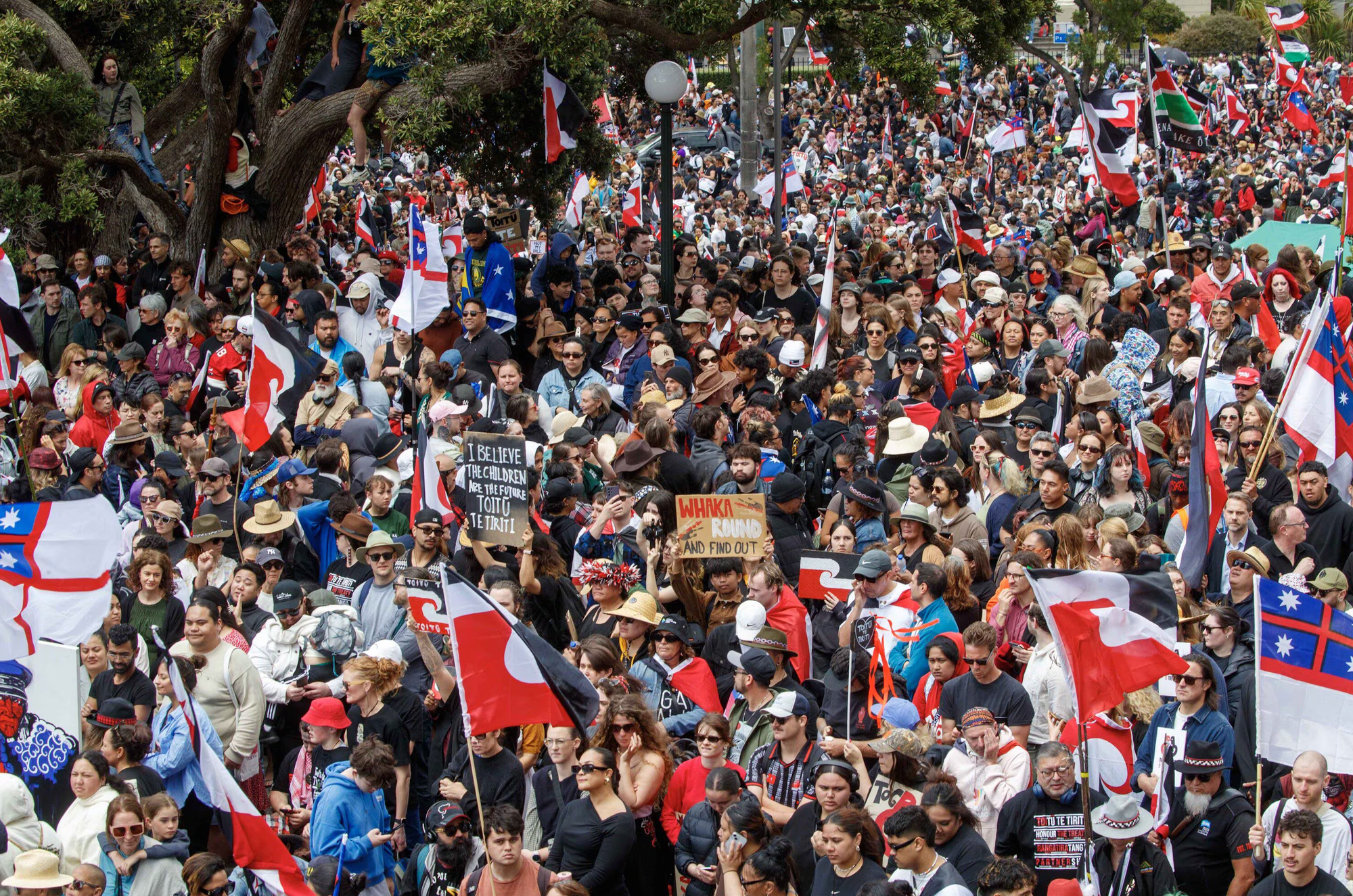
While many sports-loving Americans vaguely know the haka as “something New Zealand’s rugby team does before a game”, the response online and mutterings that have made it to my ears about a haka in parliament have been… frustrating.
It ranges from puzzlement at the facial expressions on display, to arguments over what’s appropriate behaviour for a politician. Not really something any American should be weighing in on.
And then you get the Andrew Tate’s of the world, getting five million likes on this post:
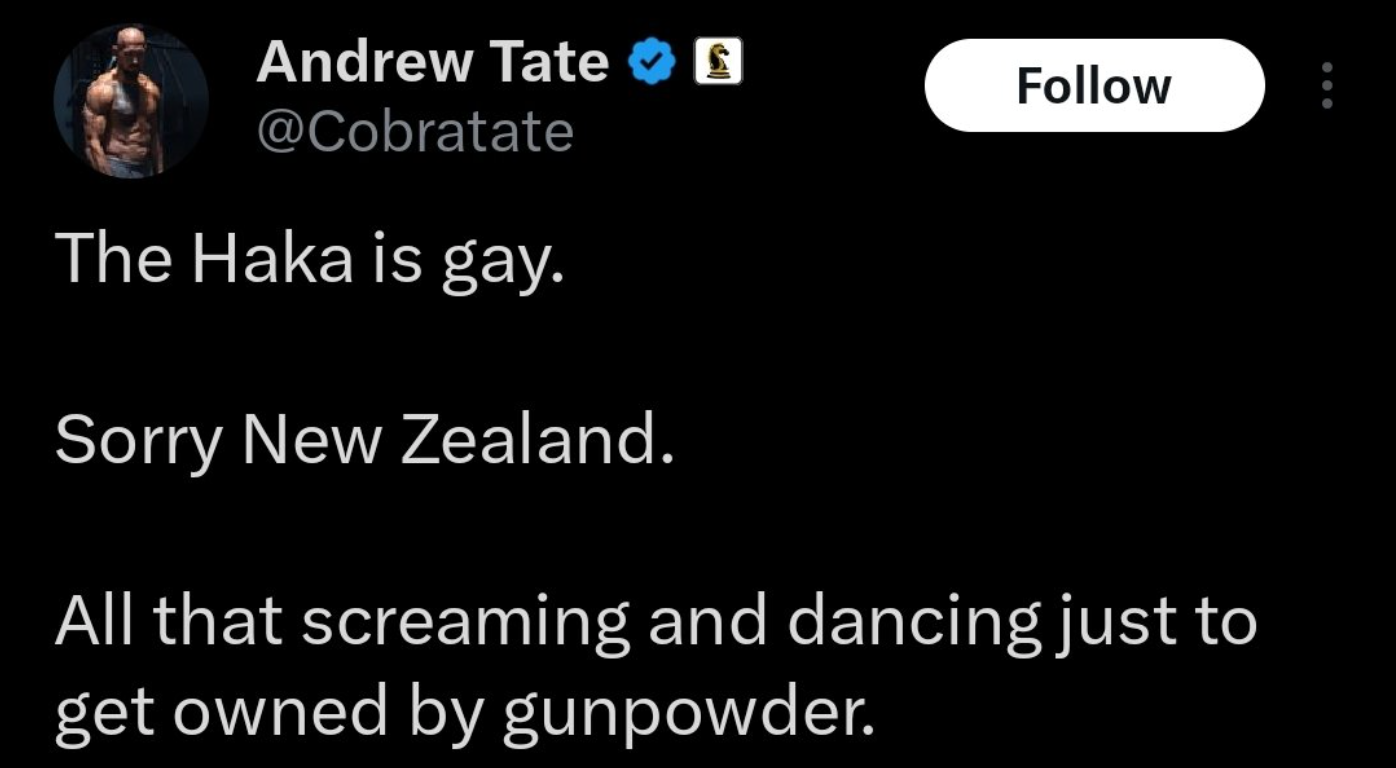
As a variety of moronic misinformation, racism and general ignorance flies around, I wanted to explain the haka that took place in parliament. To explain what it meant.
I also realised I was not the person to do this. Sometimes, it may surprise you, white men need to STFU.
It’s my extreme privilege to hand this Webworm over to Dr Emmy Rākete, a criminologist, university lecturer and activist.
I last spoke to Emmy four years ago (Webworm is four years old!) when the NZ police were trying to get more American by trialing Armed Response Teams (spoiler alert: the police’s plan didn’t go well).
I’m very glad she’s back.
David.
The Meaning Behind That Haka
Tate is being unusually & inadvertently honest about the stakes. Backing him up is a chorus of uneducated fascist commentators, attacking Māori on every possible basis.
by Emmy Rākete
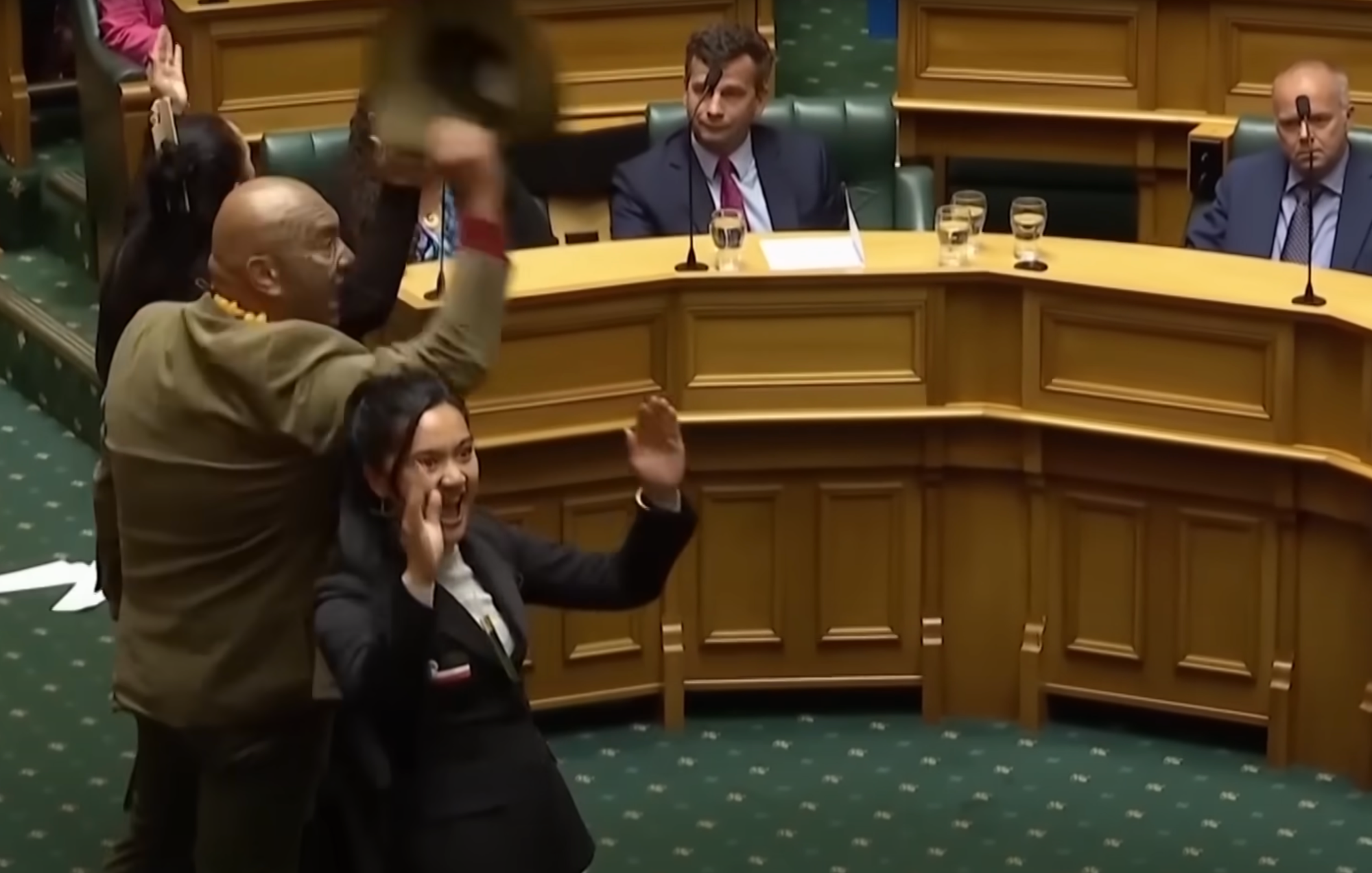
When they first got here, Europeans were fascinated by the Māori practice of facial tattooing. Treating Māori as objects to be studied, European capitalists satisfied the curiosity of museums and scientific institutions by initiating a massive trade in preserved human heads. A handful of middlemen got fantastically rich supplying Europe with mutilated Māori corpses.
When MP Hana-Rāwhiti Maipi-Clarke tore up a copy of the Treaty Principles Bill and led opposition MPs in a rendition of the haka Ka Mate, she drew the world’s attention just as intensely as the first crate of severed heads landing back in London.
In both cases, the attention itself is understandable. Facial tattoos are really interesting — it’s why I got mine — and Maipi-Clarke’s haka was awe-inspiring. The issue is that, as with the trade in human remains, the global focus on Māori and on New Zealand politics hasn’t really been informed by much actual understanding.
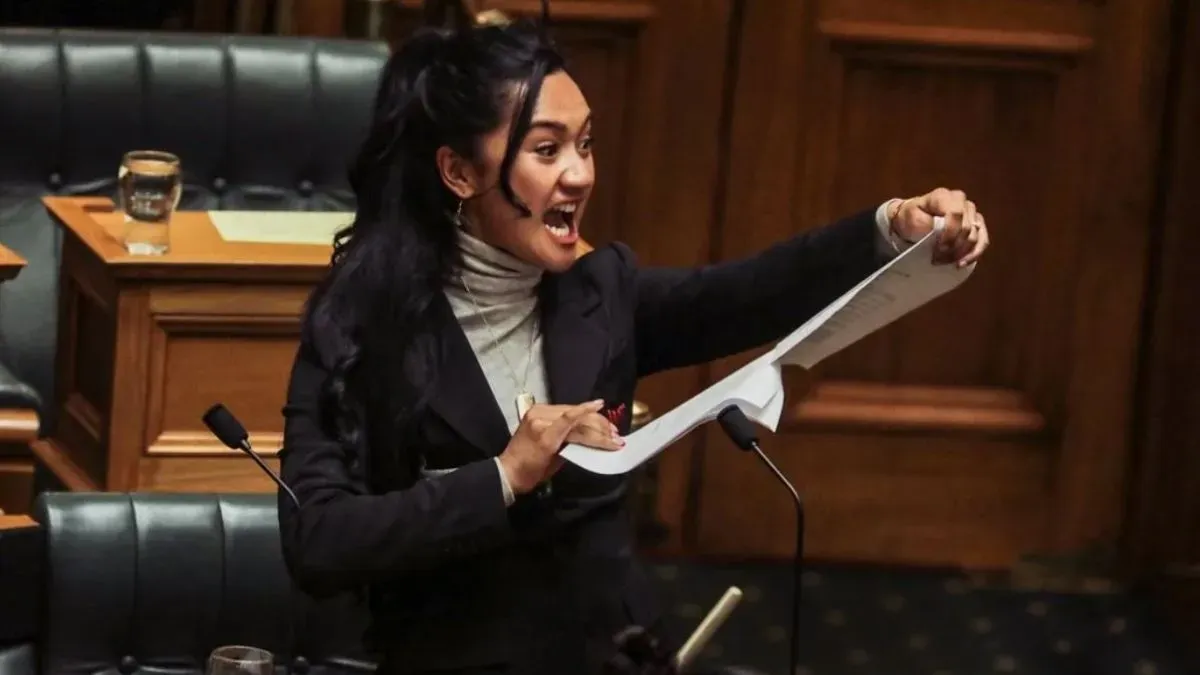
The responses I’ve seen to Maipi-Clarke have tended to fall into two main kinds of error. The first, much more forgivable, is a kind of uninformed awe. Many people, I’ve learned, haven’t had the good fortune of being born Polynesian. For the oceanically-challenged among us (no insult intended), Māori cultural norms are strange, exciting, and appealing.
This kind of exoticising perspective can cause people to uncritically adopt surface-level understandings of what they’re seeing, in a way that flattens reality into something flimsy enough to be quickly apprehended. Calling haka generally — or Ka Mate specifically — a ‘war dance’ is a classic example of this.
Ka Mate is a celebration of endurance and defiance, composed by the Ngāti Toa leader Te Rauparaha to commemorate an occasion on which he hid in a hole to avoid capture. The message it sends is not “we’re gonna kill you,” but “you’re not getting rid of us so easily.”
It might seem like a finicky distinction to make, but this misunderstanding slides into the mythical warrior race mentality that sees all Māori people as stupid, violent Klingon berserkers. For one thing, some of us are actually effete neurotic internet transsexuals — but for another, this stereotype is the basis of racist attitudes about Māori that see us treated really badly. Noble savages are still seen as savages, rather than full human beings.
Stemming from this same flimsy knowledge of Māori is a much more dangerous error.
We’ve seen an attitude of presumptuous mastery emerge, exemplified by the Wikipedia anthropologists expounding their wisdom in every comment section. Like the overawed enthusiasts, these community college racial scientists know basically nothing about Māori, and therefore presume there is little to know.
Right-wing influencers have taken to the internet to explain why Māori opposition to the Treaty Principles Bill is woke, racist of us, or otherwise worthy of derision. Even some nominally left-wing voices, like posters on the r/ultraleft subreddit or the Israeli critic of Israel Alon Mizrahi, felt like they should join in the critique.
One instructive example was Andrew Tate, who said that haka is ‘gay’ and — in a non-sequitur — that Māori were militarily defeated during colonisation by the technologically superior British. The two points don’t seem connected at first. The reason he brings up colonisation is because this discussion is no longer about Maipi-Clarke’s haka, but about our status as human beings. Tate’s argument is that, because we could be massacred, we deserved it.
This same imperialist logic — that a people’s humanity is determined by its capacity for violence — is being put into practice in Palestine. By cutting right to the chase like this, Tate is being unusually honest about the stakes. Backing him up is a chorus of uneducated fascist commentators, attacking Māori on every possible basis.
This chud militia have skimmed articles about our historical practice of cannibalism in war, our supposed technological primitivity, and the 20th century myth of a pre-Māori Indigenous people who we ourselves displaced and then regurgitated them into every comment section. I haven’t been racially harassed like this since I was the only Māori kid in a new classroom.
This inundation of dipshit racists isn’t incidental to the Treaty Principles Bill that Maipi-Clarke was protesting, though.
The Treaty Principles Bill is an attempt to retroactively redefine how the New Zealand state incorporates our founding document, Te Tiriti o Waitangi, into legislation. To keep things brief for an international audience, Māori chiefs discussed and debated a Māori-language document in which they agreed that the British could regulate the behaviour of British subjects on our land.
The British and New Zealand colonial administrations instead preferred The Treaty of Waitangi, an English-language document which no Māori chiefs ever discussed, which purports to be an unconditional Māori surrender to the British Empire. Its terms are more unequal than the Treaties of Versailles or Nanking, but it was signed before any major conflicts between Māori and Europeans.
We definitely signed something, but we sure as shit didn’t sign that.
Because the two documents are completely incommensurable, New Zealand legislation has instead referred for the most part to the ‘principles’ of the Treaty, fishing around for some vibes-based commonality between the two. The Treaty Principles Bill is an effort to trash even this meagre compromise, in order to further reduce New Zealand’s only nominal commitment to protect Māori rights.
The squadron of racists this moment has mobilised aren’t an unfortunate side-effect of the Treaty Principles Bill. They are the ones who have understood it best — they are calling us subhumans because this process is intended to reduce us to the status of subhumans.
The Treaty Principles Bill is an attempt to shunt Māori back into the ghettos and gutters to which colonisation consigned us.
50,000 people turned out to oppose it on Tuesday because we reject that past, and we reject that future.
-Emmy Rākete.
Dr. Emmy Rākete [Ngāpuhi, Te Rarawa] is a communist and prison abolitionist from Auckland. Her ancestors fought against the British Empire under Hone Heke and Te Ruki Kawiti. She helped to found People Against Prisons Aotearoa, a prison abolitionist organisation, in 2015. She is a Lecturer in Criminology at the University of Auckland.
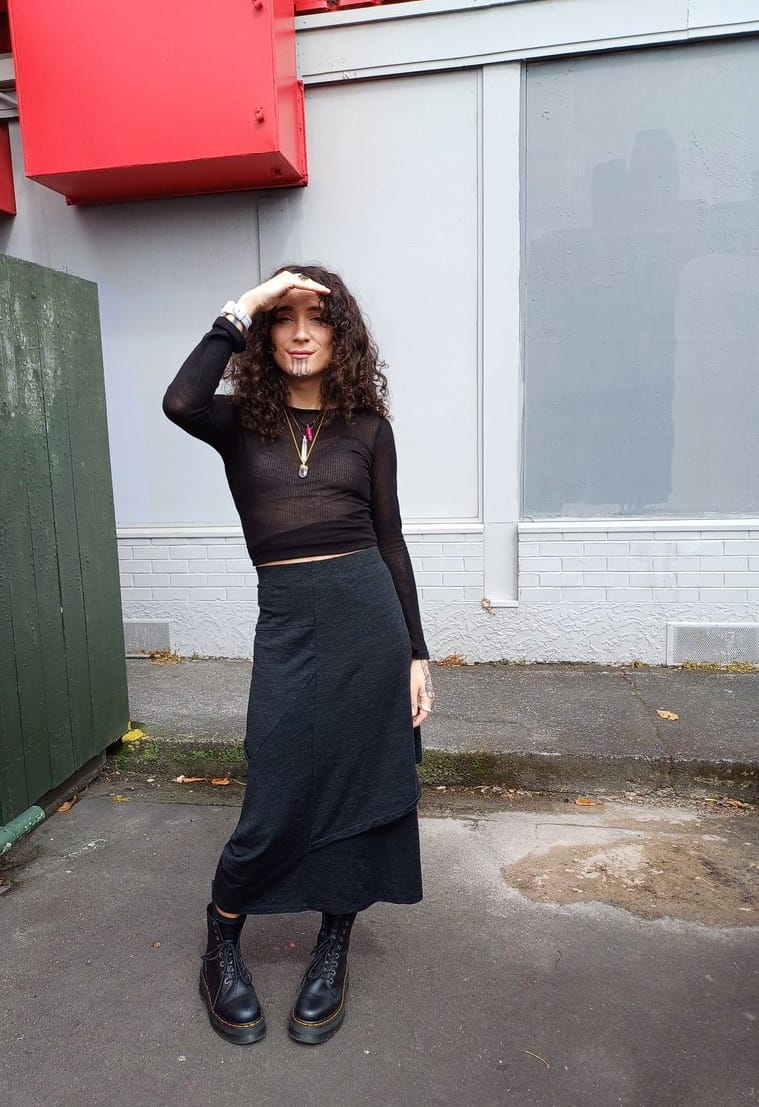
All of Webworm’s public interest journalism and commentary is free for everyone. This is made possible thanks to paying subscribers - who also keep this place 100% ad free. If you like Webworm, and it doesn’t cause you any kind of financial hardship, consider signing up.


